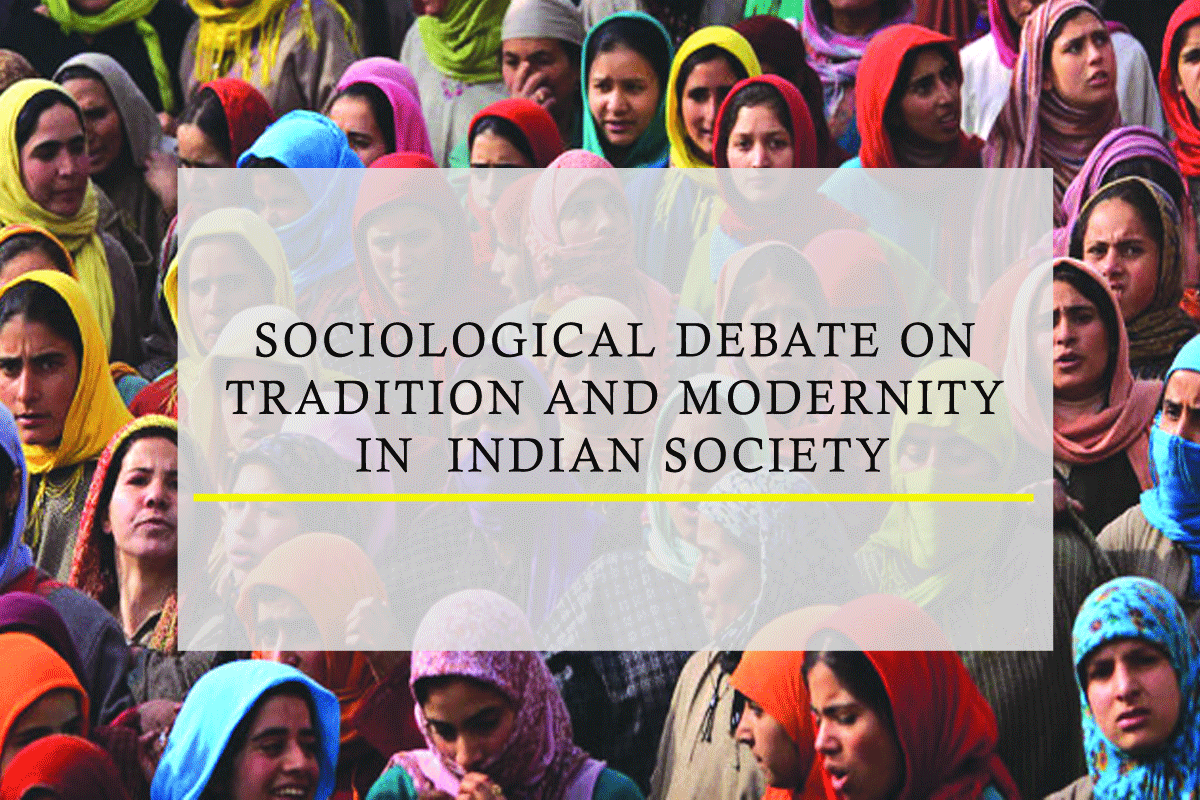Sociological Debate on Tradition and Modernity in Indian Society
(Relevant for Sociology Optional Paper 2)

Concept of Sociological Debate on Tradition and Modernity in Indian SocietyYogendra Singh has defined Indian society and its traditions with reference to hierarchy, holism, transmigration or continuity and transcendence. He argues that the Indian society also contains traditions of Islam and tribals. Prior to Yogendra Singh, the preceding sociologists such as D.P. Mukerji, D.N. Majumdar, M.N. Srinivas, G.S. Ghurye, A.R. Desai, Milton Singer and others have also made efforts to provide an explanation to the meaning of tradition in Indian society. In the study of modernization in India, tradition has always been an obsession. During the 1950s, there was a hot debate in India on tradition and modernity. In the west also, when modernization began after enlightenment, there was a serious debate on religion, science, state and fundamentalism. Feudalism was challenged by rationality, capitalism and science. In India, modernity needs to be analyzed in the context of liberalism, democracy and capitalism. The Britishers had colonial power to exploit the Indian masses, but in their effort they also wanted not to interfere in the traditional structure of Indian society. The princely rulers were highly antagonistic to modernity. Their survival depended on the continuity and strengthening of tradition. And, therefore, in Indian situation also, it is quite meaningful to discuss modernity in terms of India’s traditions and hence the obsession. |


5 comments